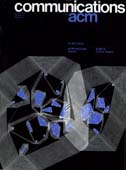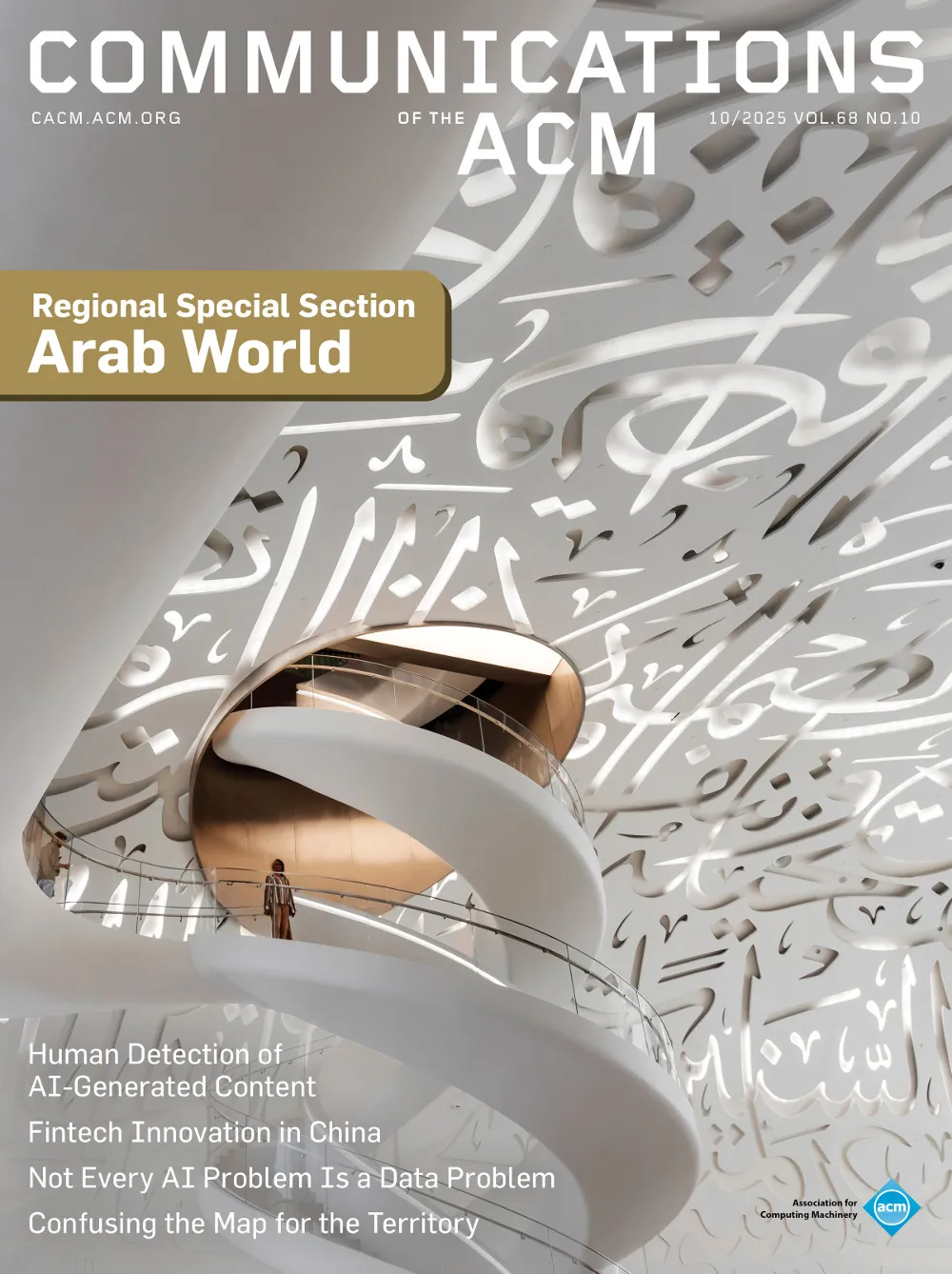March 1974 - Vol. 17 No. 3

Features
On the construction of a representative synthetic workload
A general method of constructing a drive workload representative of a real workload is described. The real workload is characterized by its demands on the various system resources. These characteristics of the real workload are obtained from the system accounting data. The characteristics of the drive workload are determined by matching the joint probability density of the real workload with that of the drive workload. The drive workload is realized by using a synthetic program in which the characteristics can be varied by varying the appropriate parameters. Calibration experiments are conducted to determine expressions relating the synthetic program parameters with the workload characteristics. The general method is applied to the case of two variables, cpu seconds and number of I/O activities; and a synthetic workload with 88 jobs is constructed to represent a month's workload consisting of about 6000 jobs.
A probabilistic model of a multiprogramming system is exercised in order to determine the conditions under which the dynamic repacking of main memory is beneficial. An expression is derived for the maximum interference that a repacking process may introduce before the original performance of the system is degraded. Alternative approaches to repacking are discussed, and the operating conditions that lead to improved system throughput through repacking are delineated.
Optimal space allocation on disk storage devices
When the amount of space required for file storage exceeds the amount which can be kept online, decisions must be made as to which files are to be permanently resident and which mountable. These decisions will affect the number of mount requests issued to the operators. This is often a bottleneck in a computing facility, and reducing the number of mounts thus decreases turnaround time. An optimization model for the assignment of files to disk packs, and packs to either resident or nonresident status is presented. Heuristics are suggested for those cases in which it is Inefficient to compute the actual optimum.
Some performance tests of “quicksort” and descendants
Detailed performance evaluations are presented for six ACM algorithms: quicksort (No. 64), Shellsort (No. 201), stringsort (No. 207), “TREESORT3” (No. 245), quickersort (No. 271), and qsort (No. 402). Algorithms 271 and 402 are refinements of algorithm 64, and all three are discussed in some detail. The evidence given here demonstrates that qsort (No. 402) requires many more comparisons than its author claims. Of all these algorithms, quickersort requires the fewest comparisons to sort random arrays.
Scan conversion algorithms for a cell organized raster display
Raster scan computer graphics with “real time” character generators have previously been limited to alphanumeric characters. A display has been described which extends the capabilities of this organization to include general graphics.
Two fundamentally different scan conversion algorithms which have been developed to support this display are presented. One is most suitable to noninteractive applications and the other to interactive applications. The algorithms were implemented in Fortran on the CDC6400 computer. Results obtained from the implementations show that the noninteractive algorithms can significantly reduce display file storage requirements at little cost in execution time over that of a conventional raster display. The interactive algorithm can improve response time and reduce storage requirements.
Emotional content considered dangerous
I had hoped that Moorer's rebuttal to my short communication in the November 1972 Communications would close the debate on a topic which, like the computer itself, has provoked an inordinately large quantity of unqualified argument. Unfortunately, the short communications by McMorrow and Wexelblat in the May 1973 Communications lead me to believe that my position is still grossly misunderstood. Therefore, allow me to clarify these matters.
Quadratic search for hash tables of sizes P n
It has previously been claimed [1 and 2] that the quadratic hash table search method of Maurer cannot usefully be applied to tables of size 2n. This is not so; the method can in fact be applied to tables of size pn for any prime p. It is shown below that rather simple conditions on the coefficients suffice to guarantee that all table locations will be examined once and only once. Specifically, if the equation is k + bi2 + ai mod pn (*) where k is the initial hash address and 0 ≤ i < pn, then, if p divides b but not a, the range of values is all the least positive residues of pn. To prove that all values are covered, we consider some fixed value, say k + bi20 + ai0 mod pn and ask, what conditions must be true if the congruence equation k + bi2 + ai ≡ k + bi02 + ai0 mod pn is to have solutions i, 0 ≤ i < pn, other than i0?
Efficient implementation of a variable projection algorithm for nonlinear least squares problems
Nonlinear least squares problems frequently arise for which the variables to be solved for can be separated into a linear and a nonlinear part. A variable projection algorithm has been developed recently which is designed to take advantage of the structure of a problem whose variables separate in this way. This paper gives a slightly more efficient and slightly more general version of this algorithm than has appeared earlier.



